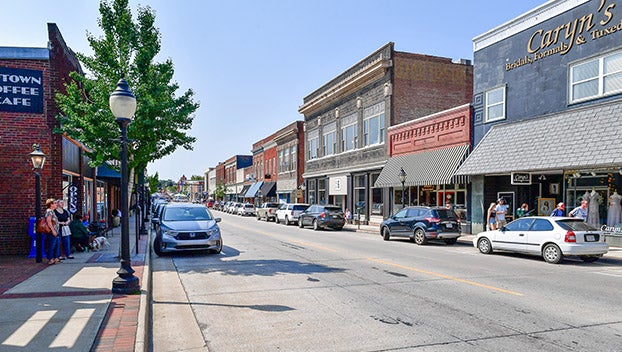Frank Ruff: Horse before the cart
Published 4:16 pm Saturday, March 18, 2023
|
Getting your Trinity Audio player ready...
|
There is an old expression, “don’t put the cart before the horse.” Sadly, if one does, either the cart will be broken or the leg of the horse; it simply does not work. If things are not done in the proper order, they will often go wrong.
The General Assembly, a couple of years ago, tried that with recreational marijuana. Some looked at Colorado and became very excited about the prospect of raking in tax dollars from the sale of pot. They passed a multi-page bill that they thought would cover all the issues. Because they were taking a product from being illegal to the point of setting up shops that could legally sell marijuana in one step, they had to wait a year to get things lined up. They opted to take this approach with no consideration of the pitfalls that might arise.
I will admit that there is a good argument for some folks to be able to use marijuana for certain medical purposes. The General Assembly began that process several years ago under strict control by the state. However, recreational use is different. If the majority believe that it should be legal, then it should be done using common sense.
Trending
The starting point should have been where we are with alcohol. There should have been a careful study to determine how much can be smoked before it affects one’s driving skills and judgment. This was not done. Therefore, law enforcement has no mechanism to understand if one is a danger on the roads. Before we do anything, law enforcement should have access to the equipment needed to determine how high an individual is. That has not occurred.
The next step can and should have been to determine the best way to establish a retail market. Many years ago, it was decided that the best way to deal with alcohol sales was to establish state operated stores. This maintains a way to restrict underage folks from legally obtaining alcohol. This idea was ignored in favor of trying to make amends with those who had previously broken the law. Their plan was to give those who had been convicted of crimes a hand up in obtaining a permit to sell. To be clear, their thinking was that if you had lived your life as an honorable and upstanding citizen, you would be put at the end of the line behind those who had not.
The group that put together the plan clearly did not understand economics. They believed they could have a tax rate of 22% on what they sold. They required that those dealers would have to have a shop with all the overhead that includes such as rent, heating and cooling, and so forth. These dealers were then expected to compete with those who have been selling on the street for years. The price difference would never be close enough to compete. The legal dealer could certainly claim his product safer, but that probably would not win him enough of the market.
Meanwhile, the illegal dealer would be forced to adjust his market plan for any potential lost business. He could simply continue his history of quietly breaking the law. He could shift and increase his marketing to more underage kids. As another alternative, he could enhance his product in some way for it to give the user more kick. We are already seeing some of that with those that mix fentanyl into what they sell.
New York Experience
Some might question my conclusions, however, look at what has happened in New York state. Regulators last year announced plans to issue 150 licenses to ‘justice-involved’ (those convicted of drug charges) licensees and 25 to nonprofits. To date, the Office of Cannabis Management has approved 66 conditional retail licenses but just four stores are open. They expect only four to eight additional stores that could open by the end of April.
In New York City only, officials have estimated there are 1,400 unlicensed businesses selling marijuana in the city.
Trending
I’m not sure that Virginia should be in the recreational marijuana business at all, but, if we are, a much better policy would be to have it sold in ABC stores which are attuned to checking identifications and could better ensure a safe product.
Frank Ruff Jr. serves as the 15th District senator in Virginia. He can be reached at Sen.Ruff@verizon.net, (434) 374-5129 or P.O. Box 332, Clarksville, VA 23927.





